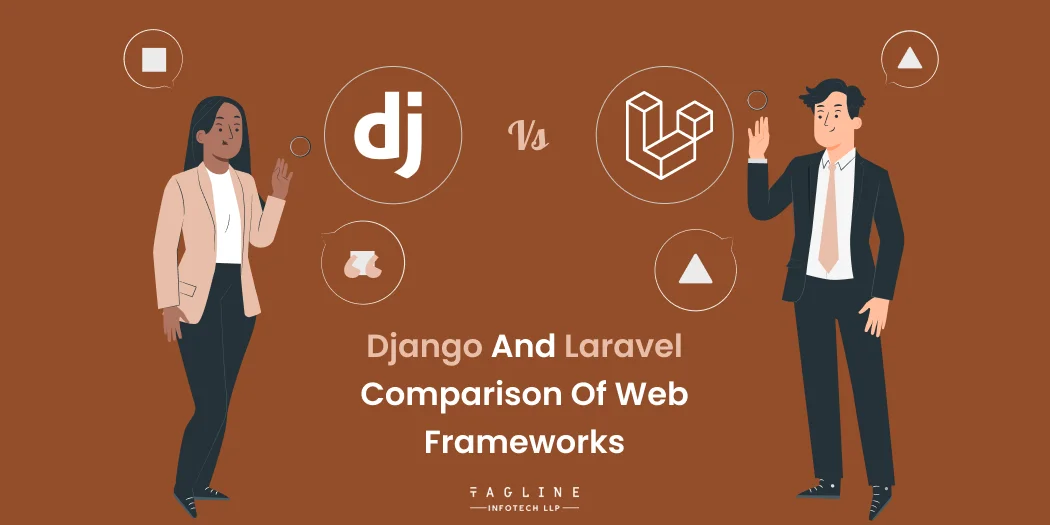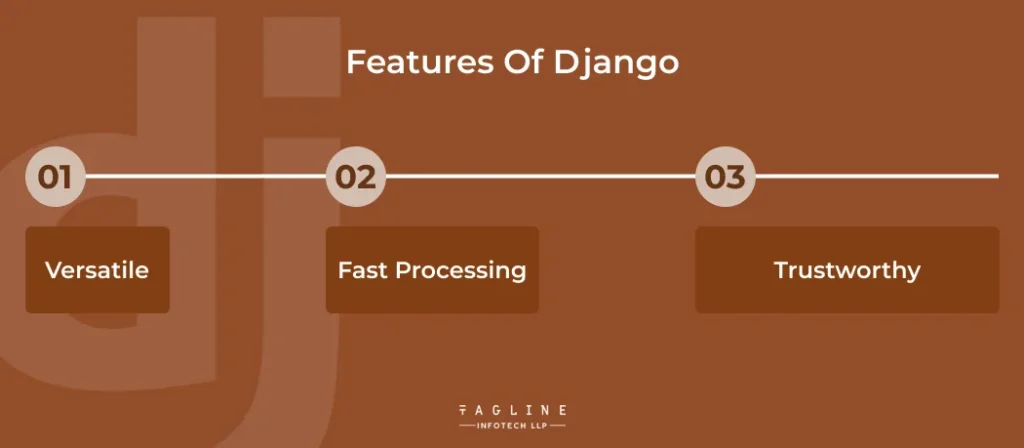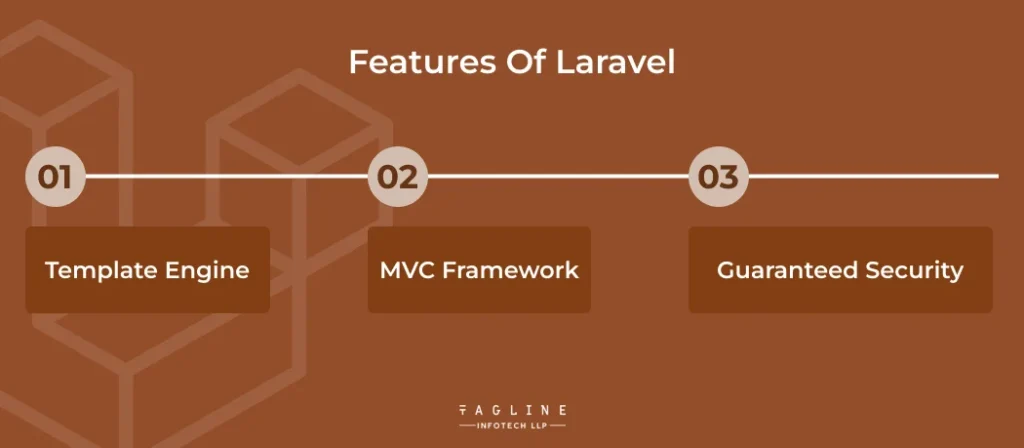Finance & IT Email Marketing: A Data-Driven Approach
February 2, 2026
Home >> Django >> Django vs Laravel – Comparison of Web Frameworks

While developing a website, one of the most crucial decisions is choosing which web framework (Laravel vs Django) to employ. A web framework has the power to make or break a project since it works much like a “skeleton” upon which your online application is built.
Django and Laravel are the two most well-known web frameworks. Each offers incredibly desirable features, functions, and capacities that allow them to meet and satisfy user needs across various industry verticals.
This article aims to resolve this debate by contrasting Django with Laravel according to many factors, such as community support, ease of learning, usability, performance, security, scalability, and support for databases and microservices. But before we do that, let’s first ensure you understand the basic concepts of web frameworks. After that, we’ll talk about Django and Laravel.
Python was used to develop the Django framework, which makes it easier to create digital projects quickly and efficiently. So be intelligent when you are hiring Python programmers for your Django projects because it will directly effect your progress. It is integrated with tools for the SQLite database and is scalable, secure, and adaptable.
Think about launching an information website, a digital library, or a social center. Django takes care of your needs. It can easily interface with several different front-end frameworks to display a diverse range of content. Django differs from other frameworks in part because of its proactive security measures. Its goal is to guide developers on maintaining website security in the face of frequent errors related to online safety.
Additionally, because Django is so extensively used, finding experts to help with Django projects is relatively easy.

Here is the list of features related to the Django:
The flexible Django framework may be used to create nearly any type of website. It can transmit content in almost any format, including HTML, JSON, RSS bolsters, and XML, and is interoperable with any client-side system. Additionally, it works in any client environment.
About other frameworks, Django’s unique architecture is one of its most significant advantages. Django uses Multicast Transport Layer (MTV) architecture, which minimizes effort and accelerates Internet transmission. Its servers operate at the highest level in terms of performance and uptime.
The goal of the Django framework for security is to “do the right things” to protect the website. As a result, developers can now securely keep an eye on user accounts and passwords and steer clear of common blunders like storing session data in cookies, leaving room for compromise.
Developing layouts, creating HTML sign-ins, and working on the server side are all fantastic tasks that can be completed with the aid of Laravel, an open-source PHP framework. It uses the MVC design pattern to simplify the creation of various apps and services.
In early June 2011, Taylor Otwell introduced Laravel as a polished CodeIgniter alternative. This was done to get around some of CodeIgniter’s drawbacks, especially user sign-ins and permissions. It will be easy to find a company that specializes in Laravel development because PHP is so commonly used.

Here is the list of key features for Laravel:
Laravel’s built-in lightweight layout uses dynamic content seeding to create engaging formats. Moreover, it gives a lot of widgets that integrate CSS and JS code a substantial structure.
The MVC architecture, which keeps the presentation and business logic layers apart, is compatible with Laravel. This increases the program’s adaptability and boosts performance and security at the same time. It also has a ton of built-in features.
Web application security is better with Laravel than it is with other environments. This is accomplished by using salted and hashed password components, guaranteeing that the password is never stored in the database in its original unencrypted form. Furthermore, the “Bcrypt Hashing Algorithm” produces an encrypted password.
“What is Django Framework Used For? “
– Also Read Article
Navigate the Django vs Laravel debate to find the perfect fit for your project!
Explore superior solutions and hire Django developers for a tailored approach to digital success!
| Topic | Django | Laravel |
|---|---|---|
| Architecture | Uses MTV Architechture | Uses MVC Architechture |
| ORM | Utilizes a proprietary ORM for seamless database administration. | Employs Eloquent, a straightforward PHP Active Record implementation. |
| Compatibility | Designed to work seamlessly with microservices, it provides support for multiple languages. | Utilizes a proprietary ORM for seamless database administration |
| Security | Comes with a built-in secure framework for handling user accounts and preventing common errors. | Utilizes Bcrypt hashing for security and safeguards against SQL injection. |
Django has an advantage over its competitors because of its close ties to Python (and, indirectly, artificial intelligence). Secondly, enterprises that prioritize security might consider Django an excellent choice due to its advanced security features.
Django excels at creating web applications that handle large volumes of data. Managing large data sets is significantly more accessible because of Django’s strong database update support and intuitive administrative interface.
When you want a web application to launch and function as soon as possible without compromising on its functionality, the Laravel framework comes in handy. If your online apps offer built-in functionality for user sessions, direct web page navigation, user logins, and data storage, they can be comprehensive and user-focused.
Web application development holds great potential, and Django and Laravel make that possible. Although Laravel is based on PHP and Django is based on Python, the two are different, resulting in variations in the libraries and functionalities each program provides. Django is often the best in performance, scalability, and maintenance. It has features like SEO tools and decorators. On the other side, Laravel’s user-friendliness shines because of its simple features, such as strategy infusion. For expert Laravel development tailored to your needs, get in touch with Tagline Infotech, your trusted Laravel Development Company. Choose your development ally wisely!
You should learn Django if you are trying to build highly scalable applications that can handle complex data. Laravel can be a better option for you if you are trying to deploy applications quickly by implementing REST APIs.
Django is faster than Laravel because it uses Python language that offers fast execution of the code while Laravel uses PHP language which is slower than Python.

Digital Valley, 423, Apple Square, beside Lajamni Chowk, Mota Varachha, Surat, Gujarat 394101
D-401, titanium city center, 100 feet anand nagar road, Ahmedabad-380015
+91 9913 808 2851133 Sampley Ln Leander, Texas, 78641
52 Godalming Avenue, wallington, London - SM6 8NW